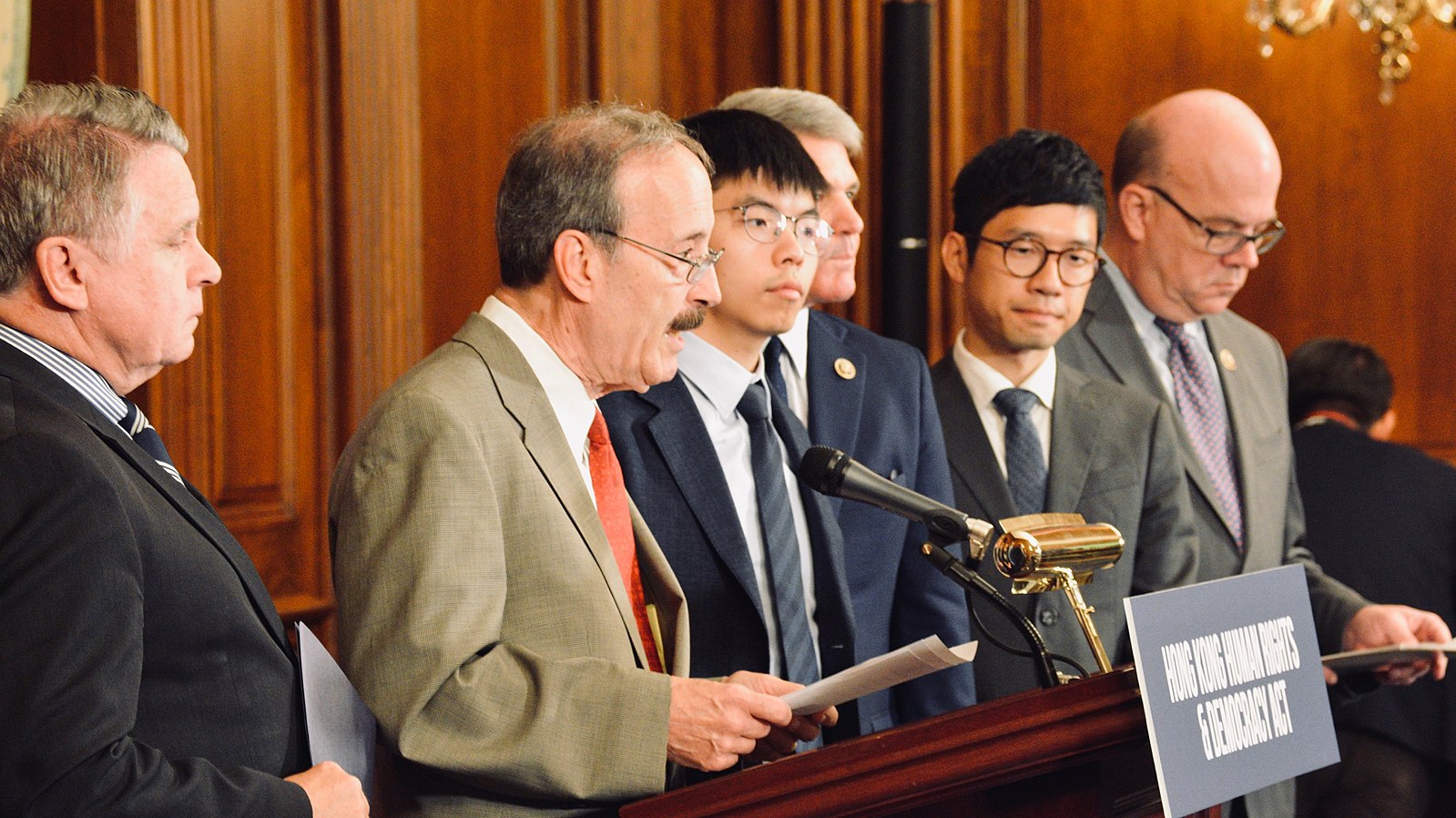Republicans Can Learn From Democrats’ Foreign Affairs Committee Contest
Republicans’ committee leadership term limits are not the only tool to hold legislators accountable and promote healthy turnover.

Published by The Lawfare Institute
in Cooperation With

After 16-term incumbent Rep. Eliot Engel’s surprise loss to challenger Jamaal Bowman in June’s New York Democratic primary, congressional observers immediately began following the race to replace Engel as the Democrats’ leader on the House Foreign Affairs Committee (HFAC). HFAC’s oversight jurisdiction ranges widely, from U.S. policy toward Israel to U.S. relations with China. The contest among Democrats to replace Engel at the end of the current Congress will likely reflect many of the party’s divides over foreign policy, as progressive Rep. Joaquin Castro announced his bid for the gavel in July.
Republicans, however, can learn from Engel’s impending departure as HFAC chair and the race to replace him. The GOP, unlike the Democratic caucuses, adheres to rigid term limit rules for committee chairs and ranking members. In the House, the Republican conference’s rules limit ranking members and chairs of committees to a total of three two-year terms in these leadership positions. Meanwhile, Senate Republicans are confined to six years of service as ranking members and six years as chairs of the same committee. These limits represent neither the best nor only option to ensure legislative accountability and leadership turnover. And with the next Congress still five months away, Republican legislators in both the House and the Senate have ample time to draw lessons from Engel’s loss and translate them into reform.
Engel’s primary loss and the contest for the HFAC gavel demonstrate that Republicans’ committee leadership term limits are not absolutely necessary for the accountability sought by these rules’ supporters. After weighing a proposal for similar limits in 2018, Democrats ultimately refrained from adopting these rules. The absence of term limits for Democratic chairs, however, does not mean that these legislators wield the gavel for life; they must still face primary and general election voters, as well as the accountability that stems from their parties’ overall performance in every election.
What explains the need for yet another layer of accountability—committee leadership term limits—when chairs can still lose primaries and general elections, or lose their gavels if their party enters the minority?
To understand the poor track record of their own term limit rules, congressional Republicans should look no further than their Democratic counterparts. Even if Democrats had joined Republicans in the 1990s in imposing term limits on committee leaders, they rarely would have invoked them since. The last Democrat to chair the HFAC for more than six years departed in 1993. While House Republican Conference rules limit committee chairs to no more than three terms, nearly 30 years have passed since a Democrat served as HFAC chair for that long.
Democrats in Congress, of course, have debated the merits of adopting committee leadership term limits of their own over the years. After the 2018 midterm elections, incoming House Speaker Nancy Pelosi expressed sympathy for Democratic legislators who sought to discuss the possibility of introducing new term limit rules. Democratic proponents of these rules argue that term limits for committee chairs create wider pathways for advancement by younger members. But many long-standing Democratic legislators and their allies have opposed these rules, arguing that they punish members who have “earned” their gavels. In almost two years, the caucus has refrained from taking any meaningful action on the issue, demonstrating the relative unpopularity of committee leadership term limit rules among House Democrats.
Meanwhile, term limits for Republican chairs may encourage an unhealthy form of leadership turnover. For example, Rep. Ed Royce, the last Republican HFAC chair, announced his retirement from Congress in 2018 after six years as chair. That year, congressional Republicans also lost several other committee leaders to retirement, and one study has shown that the GOP’s term limit rules for chairs have dramatically increased the rate of retirement of these leaders. Is this the sort of turnover and accountability sought by supporters of these rules?
Soon, Republicans will face a reckoning with the effects of their term limit rules. Senate GOP rules require members who have chaired the same committee since 2015 to relinquish the gavel next year. If Republicans lose their majority, no six-year chairs could serve as ranking members on committees where they have developed critical expertise.
House Republicans’ rules would likewise cause painful setbacks for ranking members if the party remains in the minority after the 2020 election. Conference rules count every two years as a ranking member against any future position as chair of the same committee. If Republicans cannot recover the majority, many legislators risk spending more time as ranking members than as chairs—a discouraging prospect for members of Congress who have spent years building relevant policy experience with the hope of wielding the gavel one day.
Before the next Congress gathers, Republicans should revisit both conferences’ rules and eliminate term limits altogether. These rules limit members’ “legislative effectiveness,” which Craig Volden and Alan Wiseman define as a legislator’s skill at steering a bill through Congress. These effects have especially concerning consequences for foreign policy oversight. Engel’s loss to Bowman exemplifies their unnecessary nature. At the very least, House Republicans could double their term limits to six terms—which would be a boon to ranking members. Senate Republicans could also permit qualifying legislators to serve as ranking members for up to six years after a full six-year term chairing the same committee. These changes would not eliminate term limits, but they would at least effectively align the conferences’ rules and soften their effects.
Republicans’ committee leadership term limits are not the only tool to hold legislators accountable and promote healthy turnover, as shown by the impending availability of the HFAC gavel. In fact, not only are these rules less effective, but they also incentivize unhealthy turnover without accountability. Republicans should eliminate these rules—or at least make these limits less punishing.

.jpg?sfvrsn=5a43131e_9)

